Removal Procedure
Caution: Remove the fuel tank cap and relieve the fuel system pressure before
servicing the fuel system in order to reduce the risk of personal injury.
After you relieve the fuel system pressure, a small amount of fuel may be
released when servicing the fuel lines, the fuel injection pump, or the connections.
In order to reduce the risk of personal injury, cover the fuel system components
with a shop towel before disconnection. This will catch any fuel that may
leak out. Place the towel in an approved container when the disconnection
is complete.
Notice: Servicing of the supercharger unit itself is limited to replacement
only. No attempt should be made to disassemble the supercharger, as parts
damage may result.
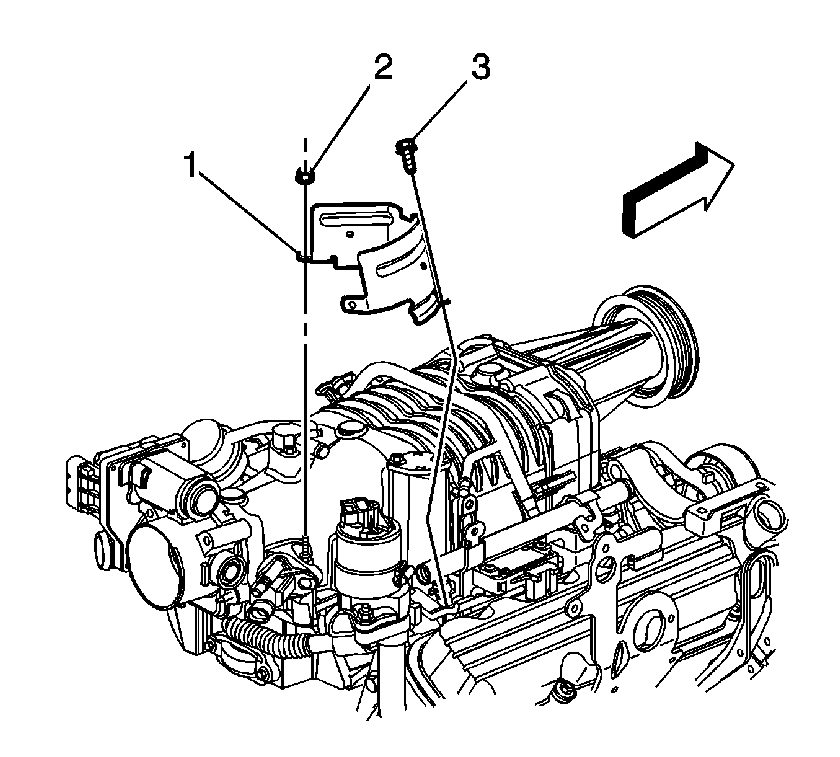
- Disconnect the negative battery cable. Refer to
Battery Negative Cable Disconnection and Connection
.
- Remove the exhaust gas recirculation (EGR) valve heat shield (1), nut (2), and the bolt (3).
- Remove the supercharger drive belt. Refer to
Drive Belt Replacement
.
- Remove the fuel rail assembly. Refer to
Fuel Injection Fuel Rail Assembly Replacement
.
- Disconnect the manifold absolute pressure (MAP) and the barometric pressure (BARO) sensor electrical connectors.
- Disconnect the vacuum hoses from the MAP .
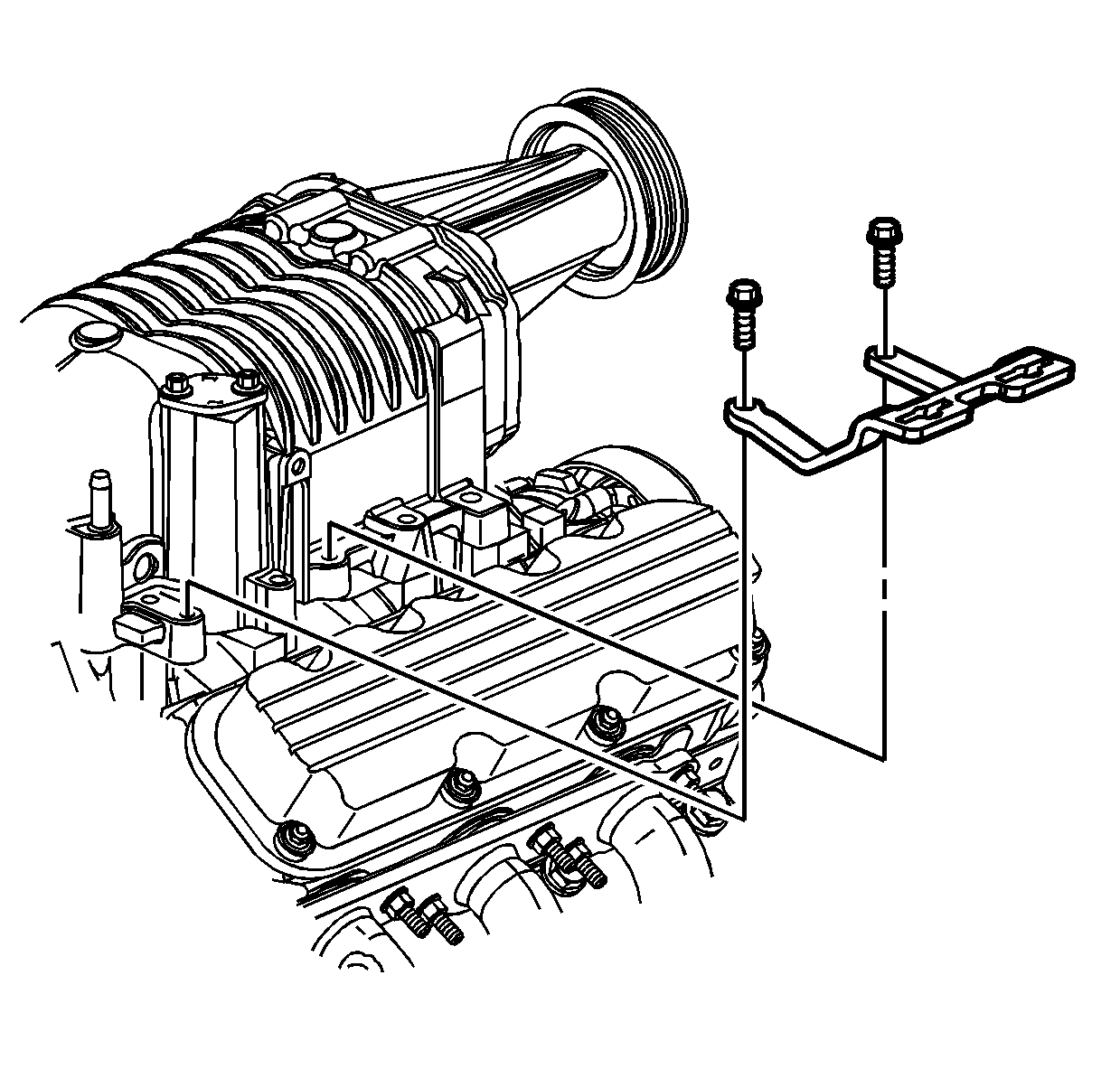
- Remove the MAP and BARO sensor bracket bolts.
- Remove the MAP and BARO sensor bracket.

- Remove the boost control solenoid. Refer to
Boost Control Solenoid Replacement
.
- Disconnect the vacuum lines from the following:
| • | Supercharger bypass valve |
- Disconnect the electrical connectors from the following:
| • | Supercharger bypass valve |
| • | Evaporative emission (EVAP) purge valve |
| • | Mass air flow (MAF)/intake air temperature (IAT) sensor |
| • | Electronic throttle control (ETC) |
- Remove the air cleaner intake duct. Refer to
Air Cleaner Inlet Duct Replacement
.
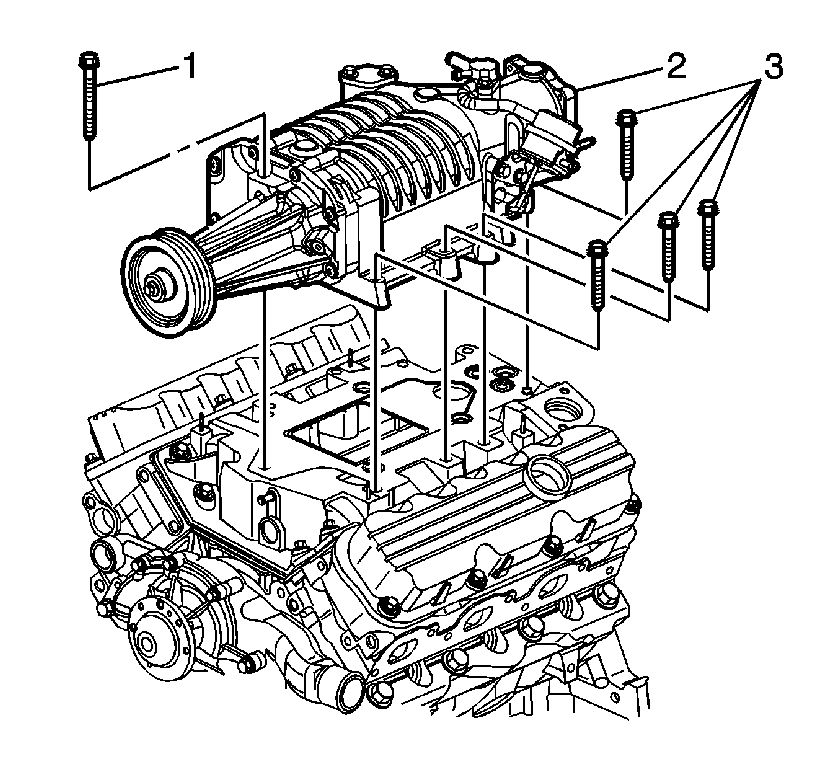
- Remove the left side supercharger bolts (1, 3).
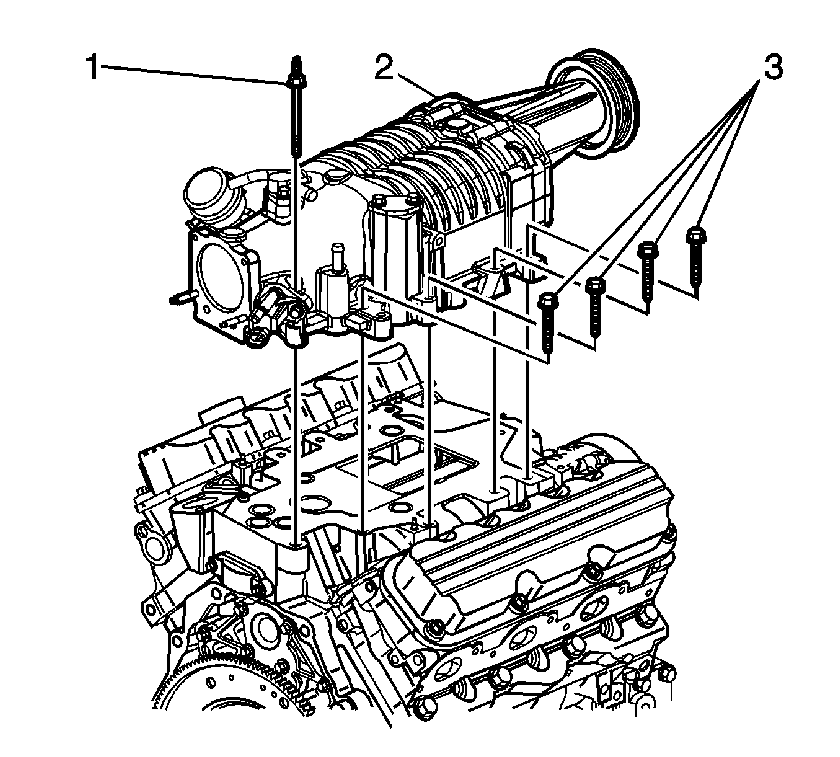
- Remove the right side supercharger bolts (1, 3).
- Remove the supercharger.
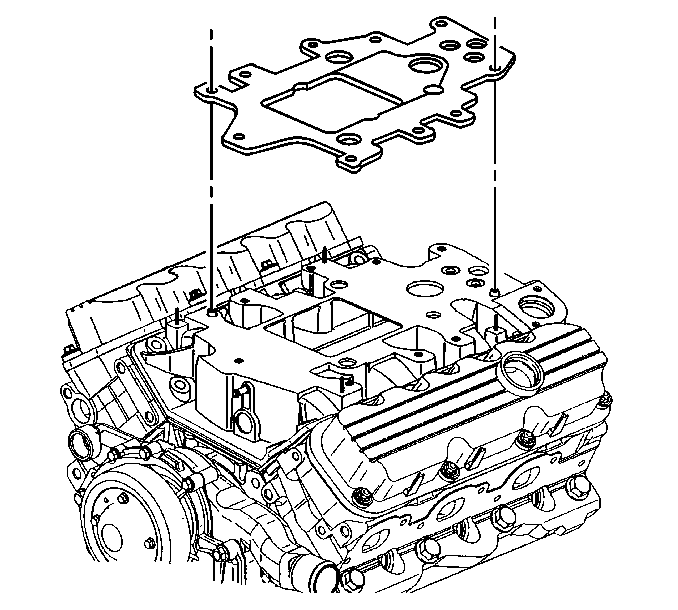
- Remove the supercharger gasket.
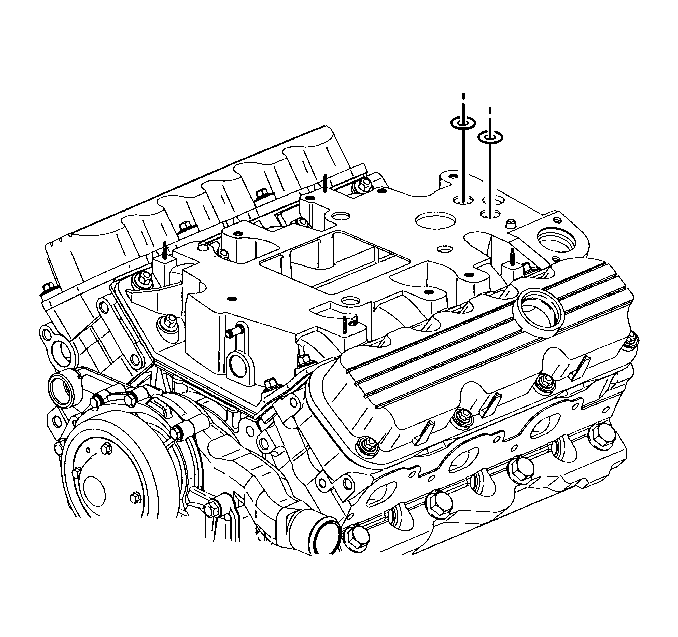
- Remove the supercharger O-ring seals.
- Clean the lower intake manifold-to-supercharger mating surfaces.
- If replacing the supercharger remove the following:
| • | Positive crankcase ventilation (PCV) valve |
| • | Supercharger bypass valve |
Installation Procedure
- If replacing the supercharger install the following:
| • | Supercharger bypass valve |

- Install the new supercharger O-ring seals.

Important: Do not use any sealer on the gasket.
- Install the new supercharger gasket.

- Install the supercharger.
- Install the right side supercharger bolts (1, 3).
Notice: Refer to Fastener Notice in the Preface section.

- Install the left side supercharger bolts (1, 3).
Tighten
Tighten the supercharger bolts starting from the center and working to the outside of the supercharger to 23 N·m (17 lb ft).
- Install the air cleaner intake duct. Refer to
Air Cleaner Inlet Duct Replacement
.
- Connect the electrical connectors to following:
| • | Supercharger bypass valve |
- Connect the vacuum lines to the following:
| • | Supercharger bypass valve |
- Install the boost control solenoid. Refer to
Boost Control Solenoid Replacement
.

- Install the MAP and BARO sensor bracket.
- Install the MAP and BARO sensor bracket bolts.
Tighten
Tighten the bolts to 30 N·m (22 lb ft).
- Connect the vacuum hoses to the MAP sensor.
- Connect the MAP and the BARO sensor electrical connectors.
- Lightly coat the fuel injectors (3) with clean engine oil.

Important: Ensure the fuel rail is fully seated in the lower intake manifold assembly.
- Install the fuel rail assembly (1) to the lower intake assembly. Refer to
Fuel Injection Fuel Rail Assembly Replacement
.
- Install the supercharger drive belt. Refer to
Drive Belt Replacement
.

- Install the EGR valve heat shield (1) , nut (2) and the bolt (3).
Tighten
Tighten the nut and the bolt to 10 N·m (89 lb in).
- Connect the negative battery cable. Refer to
Battery Negative Cable Disconnection and Connection
.
- Inspect for fluid or vacuum leaks.














